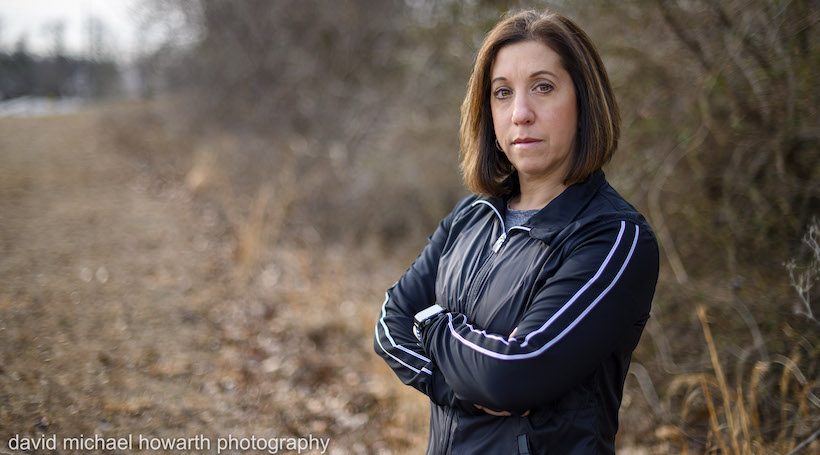When Erika Hauer was diagnosed with stage II breast cancer 4 years ago, she was concerned how treatment would affect her day-to-day experience, but never questioned her mortality.
“My whole thing was, ‘Well, what do I do now?’” says Hauer, 44, a Sicklerville resident whose cancer is in remission. “I wondered, ‘Just how sick am I going to be from chemo and surgery. And of course, the hair thing – I think that’s every woman’s concern.”
It used to be that a cancer diagnosis was considered a death sentence. Cancer was the “C” word discussed in whispers, and the first question many asked their oncologists was “Am I going to die,” says Robert Somer, MD, head of the division of hematology/medical oncology at MD Anderson Cancer Center at Cooper University Health Care.
That’s not the case anymore. New patients are typically far more optimistic about their chances of being treated and moving on with their lives, Somer says. There’s good reason for that. Advancements in treatment and earlier detection have resulted in far fewer deaths over the past few decades. Between 1991 and 2017, cancer mortality rates dropped by 29 percent in the U.S., leading to nearly 3 million fewer cancer deaths during that time, according to the American Cancer Society.
“The most common questions today are less about the actual cancer and more about what it’s like to live with cancer,” says Somer, who also directs Cooper’s Cancer Clinical Trials Program. “Those are just as important as questions about treating the malignancy.”
Here are answers to some of the most common questions about living with cancer.
1. “What do I do now?”
For Hauer, the answer to that question was to start treatment. Stat.
“I just wanted to make appointments, get things done, mark things on my calendar and move on,” she says. “I needed to make my life as normal as possible. I had three little kids at the time. I wanted to get it going so I could get it over with.”
She made an appointment with an oncologist two days after she received her diagnosis, then met with a surgeon the following day and had the necessary imaging tests done the day after that.
“Within 15 days – there were 2 weekends and the Christmas holiday – I was sitting in chemo and had my port put in,” she says.
She had 5 months of chemotherapy, had the first of her 3 surgeries a month after she finished, and was in remission within a year. As for making her life as normal as possible, despite all that was going on, she focused on staying strong in body and mind by exercising and positive thinking.
“I worked out and ran races throughout the entire thing,” Hauer says. “I had some effects, but I can’t even complain.”
2. “Can I work through my treatments?”
Some people may worry about juggling work and chemotherapy and wish for a break. Others may not have the leeway to take time off from work to deal with cancer. Still others feel work is a good diversion to take their mind off of cancer.
“What I need to understand are your personal circumstances,” says Hematologist/Oncologist Stephen Wallace, MD, with Regional Cancer Care Associates in Moorestown.
Knowing the answer to that helps Wallace support whatever decision his patients make. For those who continue working, he suggests they talk to their doctors about scheduling treatments with bad side effects on days they can take off.
“It’s not always possible, but if a patient or family member brings that to our attention, we try to help,” Wallace says. “We don’t always think about those things unless somebody actually nudges us.”
3. “Can I still have a baby one day?”
Some people find out they have cancer much younger than is typical. Because of their age, it’s likely they’ve yet to marry or have children. So in addition to the diagnosis, they must cope with also learning their cancer treatments may cause infertility.
“Often, I discuss fertility with, say, women with breast cancer at a young age or women and men who develop leukemia or lymphoma at a young age, men that develop testicular cancer at a young age, women with cervical cancer at a young age,” says Erev Tubb, MD, medical director of the Inspira Medical Center Mullica Hill Cancer Program.
Tubb says that younger patients may not be thinking that far into the future when they’re focusing on cancer treatments. He says he explains sperm banking or egg harvesting to make sure they’re aware of their options and take whatever steps necessary.
“Even if they aren’t married or they haven’t identified their partner, it is important to identify the risks and discuss the potential ways to mitigate that risk,” Tubb says. “In the event that they have identified their potential partner but have not yet decided on the right timing to start a family, then we can certainly facilitate the storage of fertilized embryos.”
4. “Am I going to lose all of my hair?”
Hauer did lose her hair – and she says that was difficult.
“I had a harder time losing my hair than losing my breasts,” she says. “It’s sad, and it’s kind of silly that we put so much emphasis on our hair, but as women, we do. A man can walk around bald, and it’s not a big deal. Women walking around bald, it screams, ‘I have cancer.’”
Somer points out that not all treatments lead to hair loss and there’s methods now considered safe to help prevent the unwanted outcome. However, the anticipation is truly upsetting to many who are newly diagnosed and not sure what to expect.
“It’s probably the number-one complaint in cancer care, particularly among women,” Somer says.
Hair loss occurs during chemotherapy because the treatment targets all rapidly dividing cells – the healthy ones as well as the cancerous ones. Hair follicles are some of the fastest-growing cells in the body, which is why they’re affected. Nowadays, patients can wear a closely fitted cap that’s cooled by chilled liquid during chemotherapy infusions. This helps to slow blood flow to the scalp.
“In the past, it was considered unsafe to do that because there’s always this potential that as you decrease the exposure of the body part to chemotherapy, you could have recurrence in that body part,” he says. “However, the current research shows that it is safe and effective.”
5. What’s life like after cancer?
That’s a hard one, because it’s different for everyone. Hauer says cancer is not something she dwells on. She goes for checkups every 6 months and stays focused on her life and her family the rest of the time.
“I’m happy for every birthday and graduation and milestone that anybody reaches,” she says. “I’m just happy to keep going forward.”














